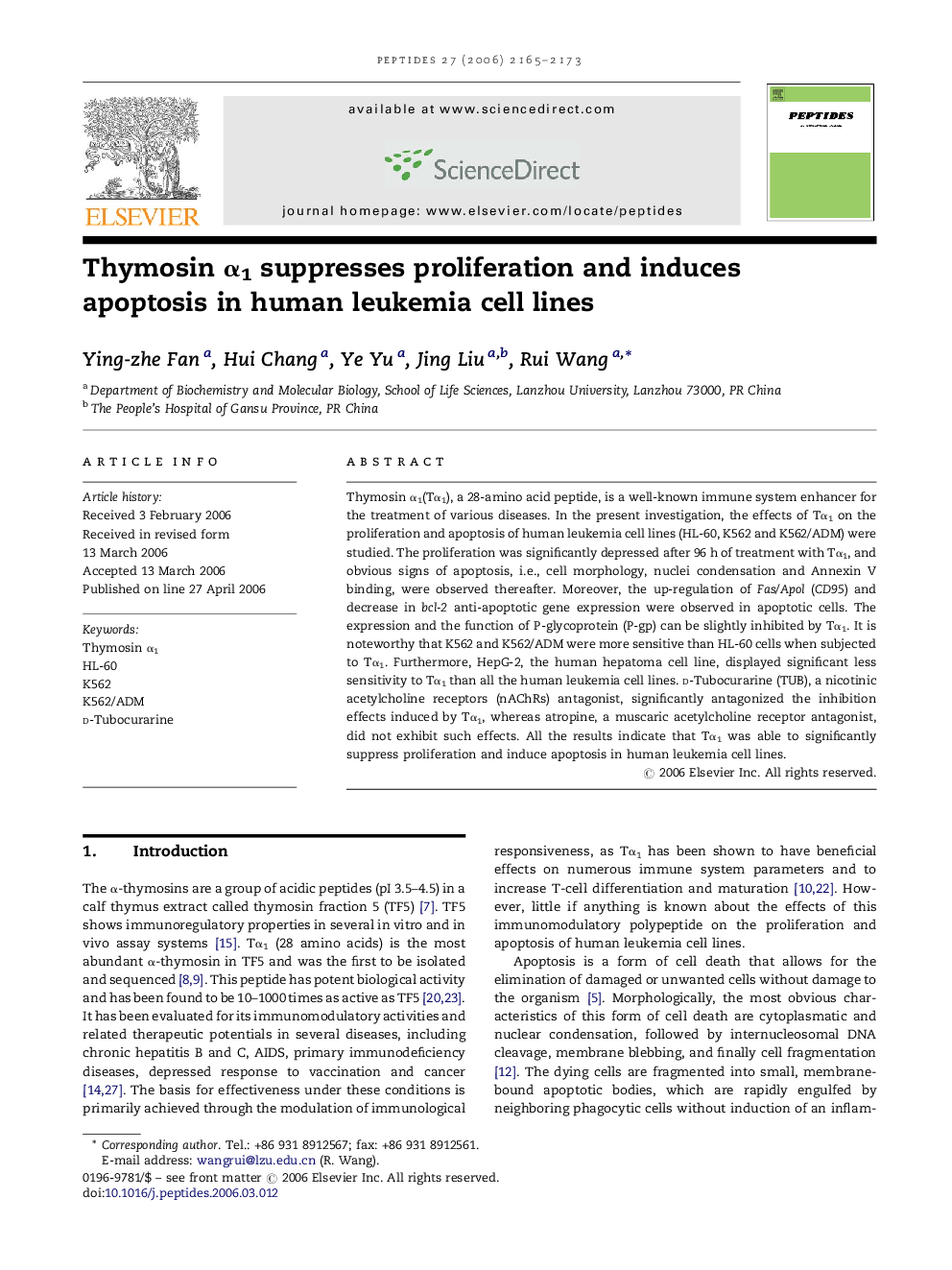| Article ID | Journal | Published Year | Pages | File Type |
|---|---|---|---|---|
| 2007960 | Peptides | 2006 | 9 Pages |
Thymosin α1(Tα1), a 28-amino acid peptide, is a well-known immune system enhancer for the treatment of various diseases. In the present investigation, the effects of Tα1 on the proliferation and apoptosis of human leukemia cell lines (HL-60, K562 and K562/ADM) were studied. The proliferation was significantly depressed after 96 h of treatment with Tα1, and obvious signs of apoptosis, i.e., cell morphology, nuclei condensation and Annexin V binding, were observed thereafter. Moreover, the up-regulation of Fas/Apol (CD95) and decrease in bcl-2 anti-apoptotic gene expression were observed in apoptotic cells. The expression and the function of P-glycoprotein (P-gp) can be slightly inhibited by Tα1. It is noteworthy that K562 and K562/ADM were more sensitive than HL-60 cells when subjected to Tα1. Furthermore, HepG-2, the human hepatoma cell line, displayed significant less sensitivity to Tα1 than all the human leukemia cell lines. d-Tubocurarine (TUB), a nicotinic acetylcholine receptors (nAChRs) antagonist, significantly antagonized the inhibition effects induced by Tα1, whereas atropine, a muscaric acetylcholine receptor antagonist, did not exhibit such effects. All the results indicate that Tα1 was able to significantly suppress proliferation and induce apoptosis in human leukemia cell lines.
